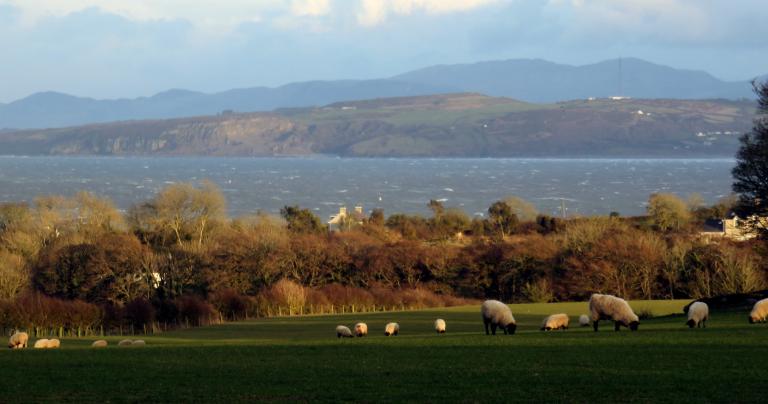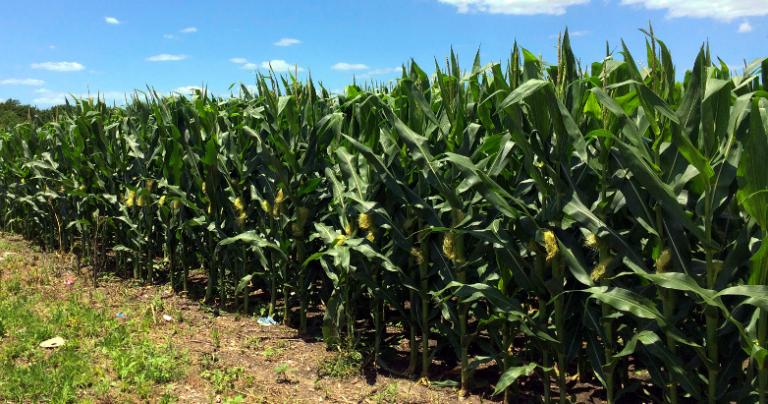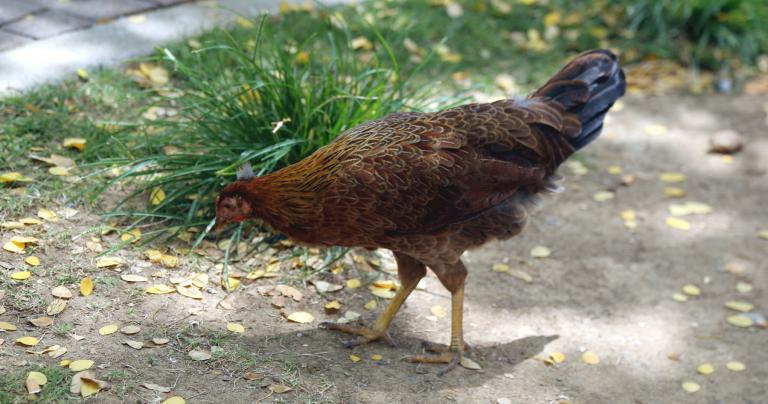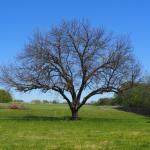A couple weeks ago the topic of animal sacrifice came up again on the Pagan internet. I reposted Sacrifice and the Fear of Real Gods from 2014. It says all I have to say on the matter. Mainly, it points out that the vast majority of opposition to animal sacrifice doesn’t come from vegetarians and vegans. It comes from omnivores expressing an unreflective gut-level “disgust and revulsion and superiority” over a practice that comes from cultures other than their own.
A few days later, I posted “They’re Confused” – Why Common Sense Is Often Wrong where I argued for personhood for chimpanzees. Someone on Facebook said (in so many words) “you said it was OK to kill animals and now you’re saying they’re persons – which is it?”
That comment and the thinking – or the lack thereof – behind it demonstrates just how thoroughly the philosophy of materialism and the doctrines of Christianity are imbedded in our culture. It sees personhood as “human,” sometimes accepting it for species we like but denying for the ones we don’t. It ignores the animistic principle that all living things (or at least, most living things) are not things but persons, with their own sovereignty and agency and with an inherent value that does not depend on their usefulness to humans.
And it ignores the fact that in order to live, we must consume the bodies of persons who were very recently alive.
Our needs as animals
For the record, animal sacrifice is not part of my religious practice. I’ve never been asked to do it. Given the deities I follow, I think it’s unlikely I will. If I ever am I’ll need a lot of training. It’s been many years since I was butchering animals and cleaning game on my father’s small farm. I don’t think I could do it right, and if you can’t do it right you shouldn’t even consider doing it.
My purpose here is not to promote or even to defend animal sacrifice. My purpose is to encourage people to think about our needs as animals. Think about how we’re related to every living thing on Earth and consider what that means in light of the fact that we must eat other living things, or die.
Animism: persons include more than animals
I consider chimps to be persons not because they’re our closest relatives but because they’re living beings that exercise agency. Dogs and cats are more distant from us biologically, but we treat our dogs and cats like persons. More importantly, we can see the personhood in the way they do what they want to do, even when we wish they’d do something else.
There is also personhood in natural phenomena. We give human names to storms, and although weather services do a much better job of predicting storms than they used to, ultimately they don’t know where the storms are going. Storms are as unpredictable as humans. Mountains don’t move, but anyone who has ever hiked or climbed in the mountains can attest that they do their own things for their own reasons – reasons that often put humans in jeopardy.
Plants are persons too. They’re alive. They grow where they want to grow. They spread their seeds around and reproduce. They do plant things for plant reasons. And they’re our relatives – we share about half our DNA with plants. Some people like to say “that’s just because that’s how DNA works.” But that only emphasizes the point that plants and animals share a common ancestor deep in our evolutionary past.
Which means that whether we are eating plants or animals or both, we are eating other persons.
Life feeds on life
This is a hard truth of Nature: we must kill to eat. And so does every other animal on the planet. Whether we eat animal persons or plant persons, either we eat something that was very recently alive, or we die. I suppose you could subsist on nothing but fruit and milk (though vegans claim dairy product are immoral – they’re not wrong, though that has more to do with methods than source), but I know of no one who actually does that. Plants feed on sunlight, but they require nutrients in the soil that come from the decaying bodies of other recently-living plants and animals.
Life feeds on life. Modern fiction about guilt-ridden vampires has a certain truth to it.
Anthropologist Walter Burkert called our species homo necans – man the killer. His theory was that our guilt was easy enough to deny when we were mostly gatherers and scavengers, like our primate cousins. But when we became hunters – much less when we began animal husbandry – the guilt over killing to eat became too strong to ignore. He proposed that early religious rituals were designed to purify ourselves from this guilt.
Christianity has another idea: Imago Dei, the idea that humans alone are “made in the image of God.” So we can do whatever we want to other creatures and it’s OK, because we’re special. How convenient. Except following that same logic, their God can do whatever he wants with lesser creatures like us. That line of thinking is one of the reasons I’m no longer a Christian and never was a Calvinist.
Where do we draw the line? How do we draw the line?
Pagan or Christian, animist or materialist, we still have to figure out where to draw the line. Which species will we eat and which ones do we decide are “too close”?
Different people and different cultures draw the line in different places. I’m not going to eat cats or dogs or monkeys – it wouldn’t feel right. But cows and chickens and pigs? Definitely. Some people won’t eat mammals but will eat fish and birds. Others won’t eat any animals. Jains have perhaps the strictest requirements of all.
I’m less concerned with where you draw the line than how you draw the line, particularly in a culture where the vast majority of us have no connection to where our food comes from. Do you mindlessly eat what you’ve always been told to eat and mindlessly ridicule those who do otherwise? Or do you consider your place in Nature and make a conscious decision based on your needs and desires?
Most importantly, do you acknowledge the sacrifices required to keep you alive? Do you honor those sacrifices, in both ritual and through sustainable practices? Is your eating sacramental eating?
But whuddabout cannibalism?
I hate to dignify this with a response, but if I don’t, someone will bring it up. Someone whose goal is either derailing the conversation or simply reinforcing Imago Dei is going to ask “if I can draw the line where ever I want, what’s to stop me from drawing it only around me and eating other people?”
Do you really need a reason to abstain from cannibalism? Is there just nothing else that will pair well with fava beans and a nice chianti?
Understand that this question is rooted in racist, colonialist propaganda intended to portray indigenous people as “savages” to justify enslaving them and stealing their land.
Humans have never used other humans as a regular food source. The documented instances of cannibalism are from rituals, where people would eat small portions of a dead relative to do insure that they lived on not just in their memories, but also in their bodies. Other instances were eating conquered enemies, either to consume their strength, or to demonstrate – especially to would-be attackers – that they were utterly defeated.
And of course, desperate people do desperate things.
If you must have a reason to abstain from cannibalism, start with avoiding brain diseases. Continue with the usual reasons for avoiding murder – namely, that someone (either the law or an angry relative) will come after you if you do. Most importantly, unless you’re a psychopath of Hollywood proportions, the guilt will be tremendous.
Cannibalism is an irrelevant distraction in discussions of the necessity of killing to eat.
Food is complicated
Animism (“everything has is spirit, or is a spirit”) is a more accurate and more beneficial way of viewing the world than materialism (“the universe is mostly composed of dead matter”). But the complicated nature of food is a hindrance to changing people’s foundational assumptions. If we accept that all living things are persons, we have no “others” that can be eaten guilt-free.
And sooner or later, we’re going to get hungry.
I cannot tell you what you should or should not eat. I cannot absolve you of your guilt for eating other persons, and I will not rationalize away the personhood of non-human species (be they animals or plants) to enable mindless eating. As with so many things in life, our desire for easy answers leads us to jump to untrue and unhelpful conclusions.
Instead, I encourage you to learn where your food comes from. I encourage you to honor it as a sacrifice, and to support the sustainability of all the species and ecosystems involved. Guilt is best assuaged by accepting reality and dealing with it head-on.
And then enjoy your dinner.




















